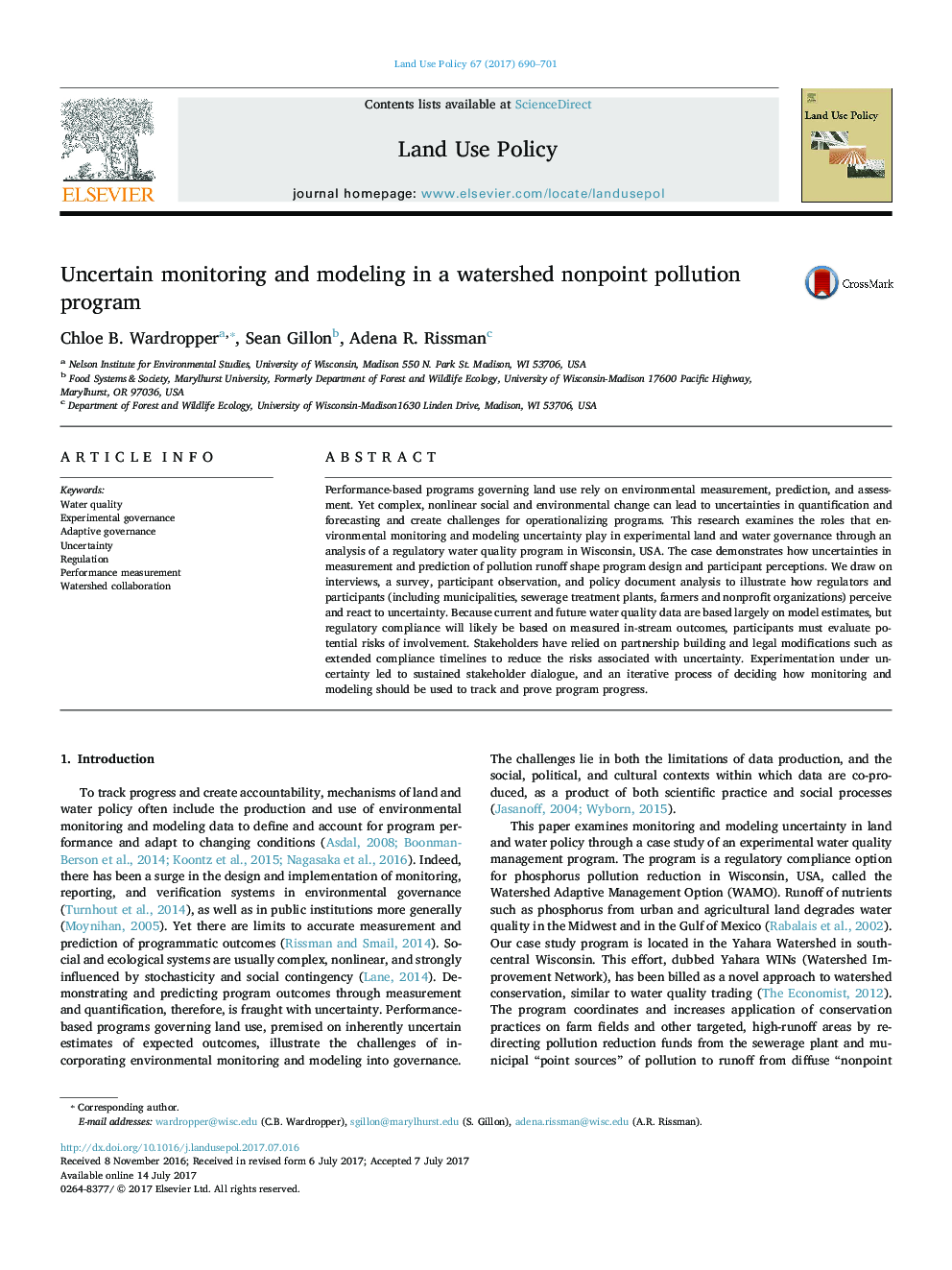| Article ID | Journal | Published Year | Pages | File Type |
|---|---|---|---|---|
| 6460769 | Land Use Policy | 2017 | 12 Pages |
Performance-based programs governing land use rely on environmental measurement, prediction, and assessment. Yet complex, nonlinear social and environmental change can lead to uncertainties in quantification and forecasting and create challenges for operationalizing programs. This research examines the roles that environmental monitoring and modeling uncertainty play in experimental land and water governance through an analysis of a regulatory water quality program in Wisconsin, USA. The case demonstrates how uncertainties in measurement and prediction of pollution runoff shape program design and participant perceptions. We draw on interviews, a survey, participant observation, and policy document analysis to illustrate how regulators and participants (including municipalities, sewerage treatment plants, farmers and nonprofit organizations) perceive and react to uncertainty. Because current and future water quality data are based largely on model estimates, but regulatory compliance will likely be based on measured in-stream outcomes, participants must evaluate potential risks of involvement. Stakeholders have relied on partnership building and legal modifications such as extended compliance timelines to reduce the risks associated with uncertainty. Experimentation under uncertainty led to sustained stakeholder dialogue, and an iterative process of deciding how monitoring and modeling should be used to track and prove program progress.
